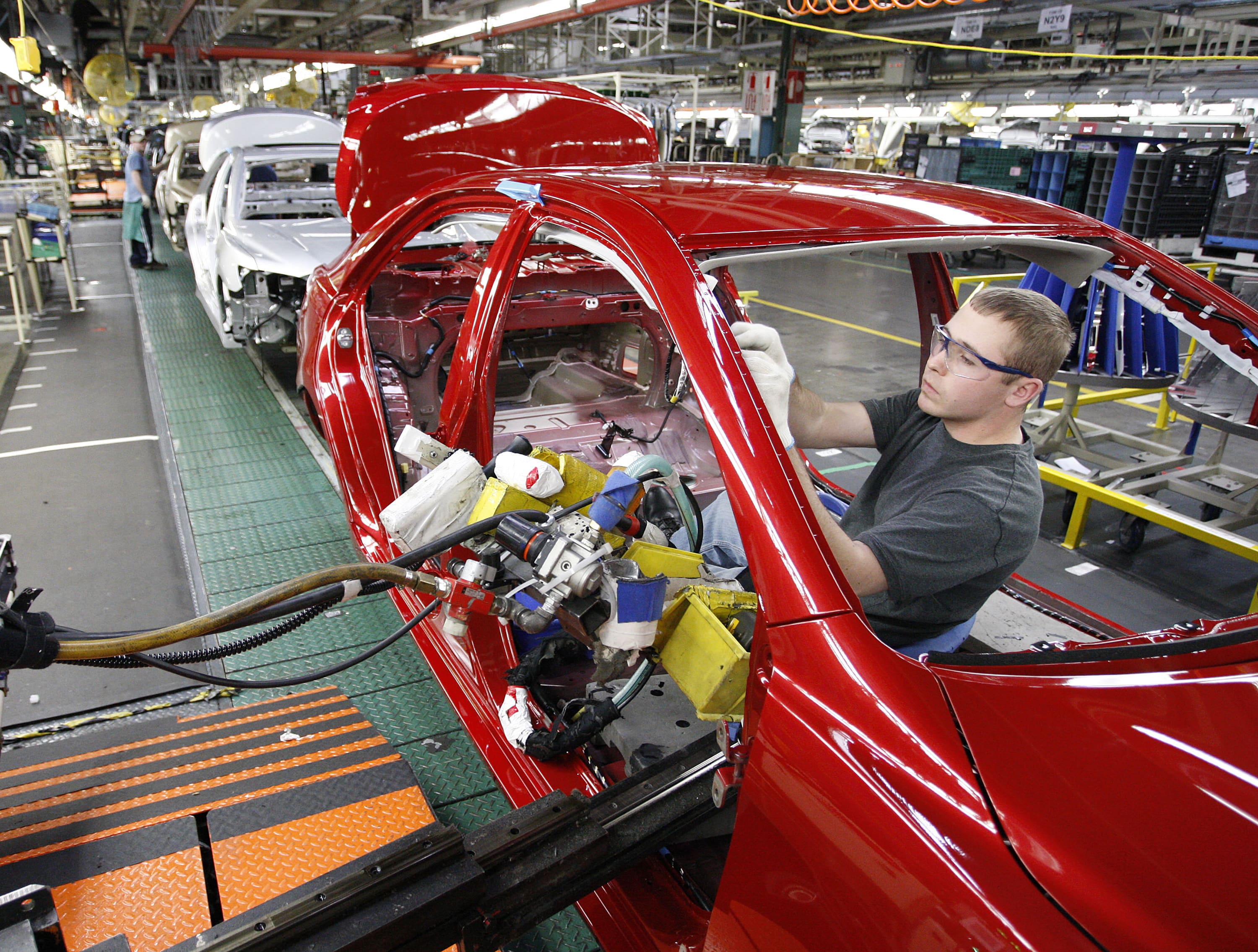
The Toyota Motor manufacturing plant in Georgetown, Kentucky.
Charles Bertram | Lexington Herald-Leader | Tribune News Service | Getty Images
Shares of Asian automakers dropped in Friday trade after U.S. President Donald Trump announced fresh tariffs on Mexico.
In Tokyo afternoon trade, shares of Nissan dropped 3.71%, while Toyota declined 2.02% and Mazda plunged 6.12%.
Similar losses were seen over in South Korea, where Kia Motors saw its stock fall more than 3.64%.
The moves came after Trump announced in a Twitter post on Thursday night stateside that the U.S. plans to impose a 5% tariff on all Mexican imports from June 10, until "the Illegal Immigration problem is remedied." The White House added in a statement that the tariffs could be increased if the immigration issue continues.
Mexico is used as a production base by many Japanese automakers. They manufacture vehicles such as cars and trucks in the North American nation for export, according to data from Mexico's auto industry association AMIA.
One analyst told CNBC that the "mostly likely response" by the automakers was to pass on the additional cost imposed by tariffs to consumers.
"President Trump needs to recognize it's not the Mexicans that are paying the tariffs," said Janet Lewis, head of Asia industrials research at Macquarie Capital Securities.
Lewis added that the sell-off seen in the shares of Asian automakers was not just related to the latest announcement of U.S. tariffs on Mexico, with some of the companies actually "not exposed" in a meaningful manner.
To illustrate her point, she cited the example of Mitsubishi Motor. The company's stock slipped 3% in afternoon trade, even though it "doesn't produce anything" in Mexico.
Instead, she said, there was sense of general unease surrounding the global trade landscape as investors considered the repercussions of a protectionist U.S. on the global economy.
Asked about where the greatest impact would likely be felt, Lewis said "the risk is greatest on supply chain more than the trade in completely built units coming across the border" due to the "extremely integrated" nature of North America's auto industry.
Up to now, investment decisions in parts were made without consideration for whether they were made in the U.S., Canada or Mexico, she said.
The latest moves by the Trump administration come on the back of a recent announcement that it will delay tariffs on cars and auto part imports for up to six months as it seeks to strike trade deals with the European Union and Japan.
No comments:
Post a Comment